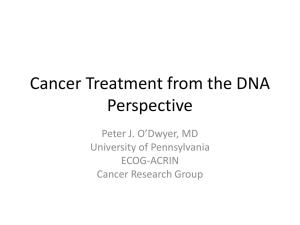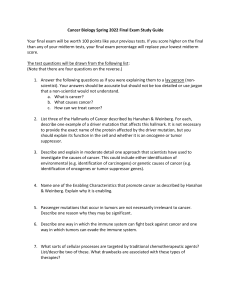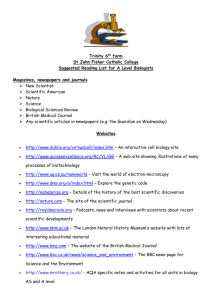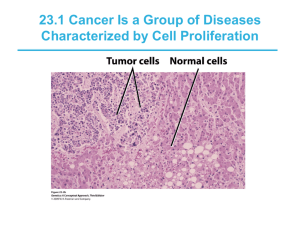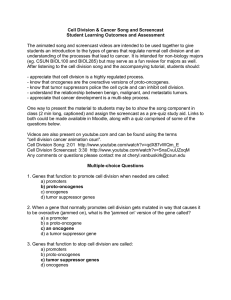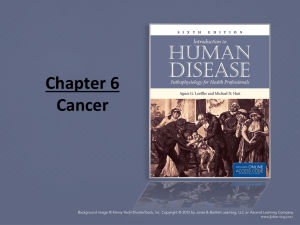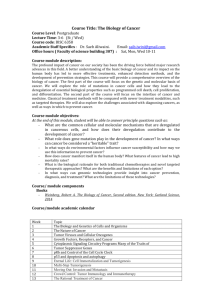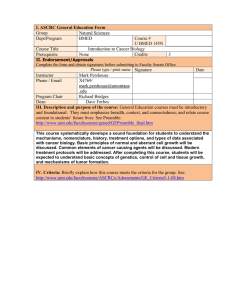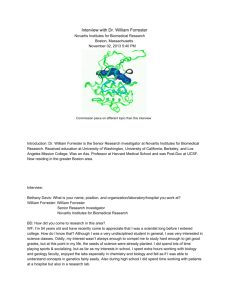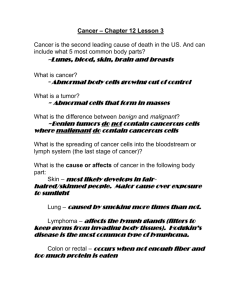Ovarian Cancer Case Study: Genetics, Cell Cycle, & Treatment
advertisement
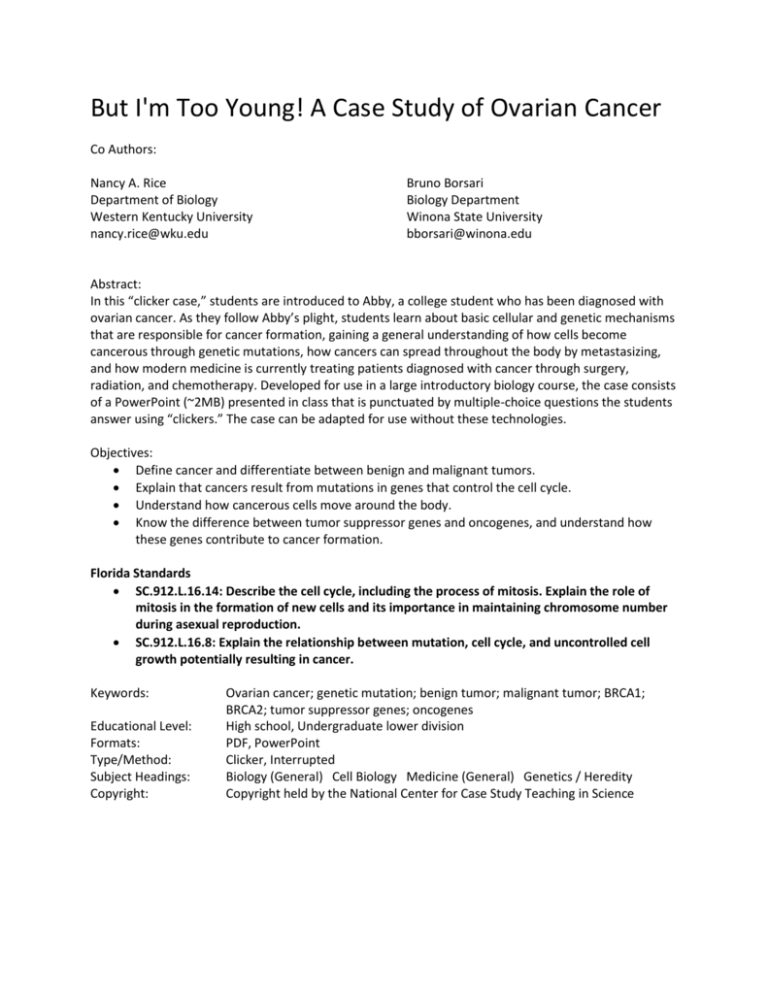
But I'm Too Young! A Case Study of Ovarian Cancer Co Authors: Nancy A. Rice Department of Biology Western Kentucky University nancy.rice@wku.edu Bruno Borsari Biology Department Winona State University bborsari@winona.edu Abstract: In this “clicker case,” students are introduced to Abby, a college student who has been diagnosed with ovarian cancer. As they follow Abby’s plight, students learn about basic cellular and genetic mechanisms that are responsible for cancer formation, gaining a general understanding of how cells become cancerous through genetic mutations, how cancers can spread throughout the body by metastasizing, and how modern medicine is currently treating patients diagnosed with cancer through surgery, radiation, and chemotherapy. Developed for use in a large introductory biology course, the case consists of a PowerPoint (~2MB) presented in class that is punctuated by multiple-choice questions the students answer using “clickers.” The case can be adapted for use without these technologies. Objectives: Define cancer and differentiate between benign and malignant tumors. Explain that cancers result from mutations in genes that control the cell cycle. Understand how cancerous cells move around the body. Know the difference between tumor suppressor genes and oncogenes, and understand how these genes contribute to cancer formation. Florida Standards SC.912.L.16.14: Describe the cell cycle, including the process of mitosis. Explain the role of mitosis in the formation of new cells and its importance in maintaining chromosome number during asexual reproduction. SC.912.L.16.8: Explain the relationship between mutation, cell cycle, and uncontrolled cell growth potentially resulting in cancer. Keywords: Educational Level: Formats: Type/Method: Subject Headings: Copyright: Ovarian cancer; genetic mutation; benign tumor; malignant tumor; BRCA1; BRCA2; tumor suppressor genes; oncogenes High school, Undergraduate lower division PDF, PowerPoint Clicker, Interrupted Biology (General) Cell Biology Medicine (General) Genetics / Heredity Copyright held by the National Center for Case Study Teaching in Science
